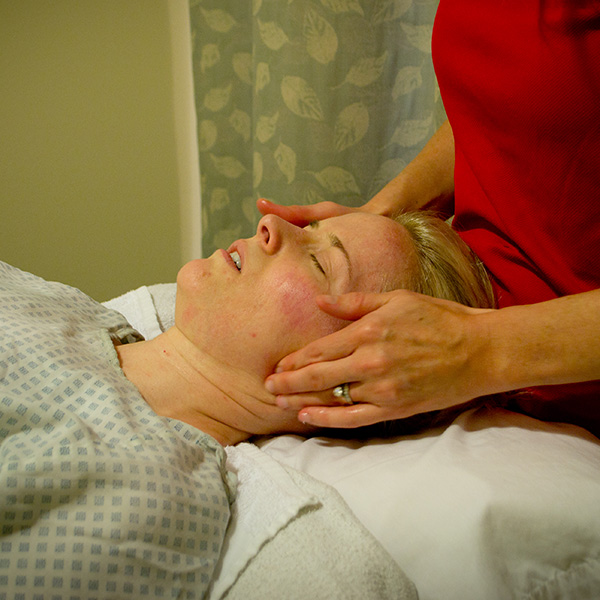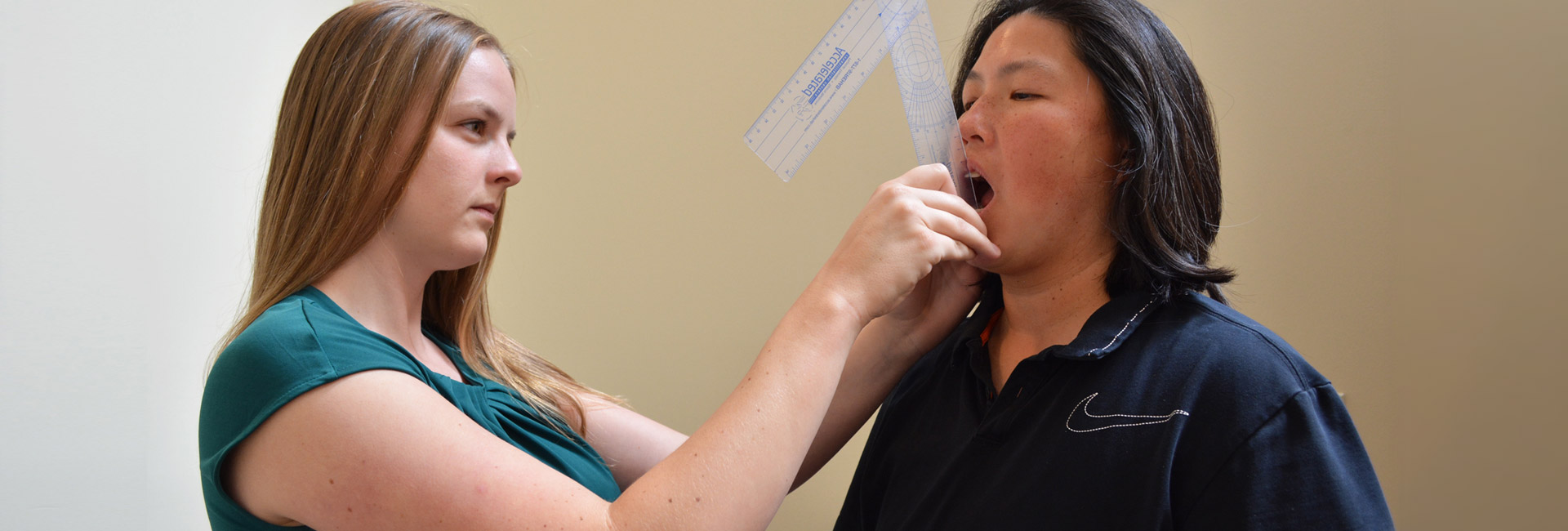Physical Therapy for TMD
Temporomandibular Disorder (TMD) is a broad term that encompasses disorders of the temporomandibular joint and its associated anatomical structures. If you have pain in your jaw on one or both sides, you may have TMD (sometimes referred to as TMJ). Symptoms — including jaw pain, the sensation that your face muscles are in spasm, and clicking or catching of your jaw — can make daily activities such as talking and eating difficult. Symptoms typically come on gradually and are not associated with a specific event or injury.
Our skilled physical therapists are educated and experienced in treating this disorder. We focus on assessment, direct intervention and patient education with the goal of decreasing pain, improving posture and restoring movement and more normal jaw mechanics. Utilizing evidence-based physical therapy services specifically designed to address your unique situation, your PT will work with you to determine the cause of your pain and develop goals for your course of therapy.
How We Help
Every individual is different. That’s why we will take the time to listen and understand your story and conduct a thorough evaluation. We begin treatment by testing and assessing:
- Cervical/Thoracic range of motion
- Temporomandibular range of motion
- Posture
- Pain
- Palpation for tissue integrity
- Strength
- Intervertebral mobility
- Craniovertebral instability
- Visible signs of tension
- Respiration

We are committed to helping you return to full function. Our focus is on patient education regarding critical elements of healing, anatomy, and biomechanics of the masticatory system and cervical/thoracic spine. Emphasis is placed on the importance of proper posture and body mechanics and distinction between stretching and strengthening exercises. Your physical therapy plan of care may include:
- Modalities as needed for pain
- Progressive stretching activities with postural correction emphasized
- Progressive strengthening activities
- Joint mobilization as indicated
- Intra- and extra-oral massage
- Functional exercise progression
- Relaxation/stress management instruction
- Developmental Coordination Disorder
- Cardiovascular conditioning
